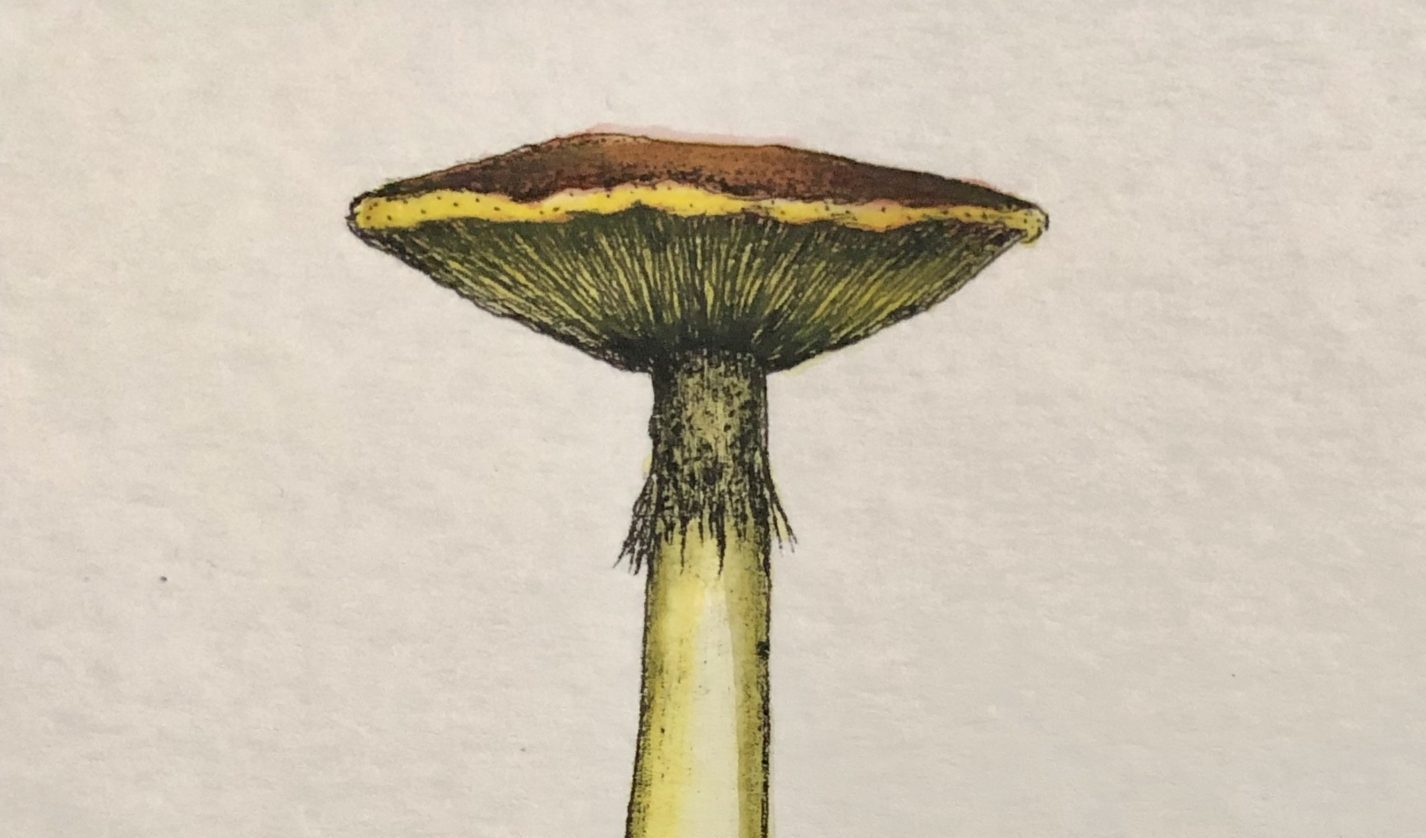It’s been a few days since Marina Manoukian’s review of “Far From Their Eyes: Ohio Migration Anthology” came out in the Arts Fuse and I’ve been sitting on it, doing some thinking.
I’ve been sitting on it because I’m stunned. Manoukian captured exactly what we were trying to say with the anthology. She captured it and added to it. For example, I never thought about how Eldis Rodriguez-Baez’ painting “The Unfinished Journey”—a painting of a dank mushroom over a paper boat—can be a metaphor for “an unseen network” (of mushrooms and people). Deep in the forest, spread out, and often hidden, networks are vital to facilitating migration.
I’m pulling out a few of my favorite quotes from her review here, but you must read the whole thing. It feels a little weird to be “reviewing the review,” but I wanted to give Manoukian her props.
If you want to engage directly with the book, pick up a copy at one of the local or online sellers here; download the “Reflection and Creation Guide”; and join some of our contributors at a book reading and signing at Loganberry Books in Cleveland, Ohio on December 12.
Following are some of my favorite points from Marina Manoukian’s review, “Ohio Bound.”
- This anthology, for all its occasional sadness, is optimistic about the future of immigration to America.
- In another world, these stories may not have found a place amongst one another. One of the contributors, Houleye Thiam, the President and Founder of Youth and Hope Inc, points out another truth: migration is not always a choice for some. Far From Their Eyes, Vol 1 is an ambitious collection that digs deep into the complex drama of migration across time and space. Skye Nguyen’s “The Life and Story of My Grandpa” was written when the author was in fifth grade. Michele Rudolph’s “Cleveland, The New Promised Land,” tells a story inspired by her father, her way of paying tribute to him “and the six million other African Americans who were a part of the Great Migration.” Thiam’s poems assert the ubiquity of accents and proclaim how “This accent is a poet and a storyteller. This accent is the seed of endless possibilities./ Yes this accent is me, all of me, and I am a work in progress.”
- Eldis Rodriguez-Baez’s paintings, interspersed throughout the anthology, offer a poignant respite from the verbal. With each illustration, a reader can catch their breath while it simultaneously catches in their throat. A fish gazes impassively as a hook and who knows how long the paper boat will float — but then there’s the mushroom, the implication of an unseen network. A mycelium connectivity as one person branches off into another.
- What comes out of reading about these experiences? What comes out of knowing about the different things people endure on their way from being in one place to another? To read about the movement of others isn’t about preparing for the inevitable — it’s about finding the intersections that inevitably remake us all. An anthology is tasked with bringing things together, and the remarkable thing about this volume is that the stories were already together. The authors and their stories came to Ohio before they were compiled in the anthology, though they are neither the first nor the last.
- It’s estimated that ICE is holding people in over 200 immigrant prisons and jails in the United States and over the course of nine days in September 2021, the Biden administration expelled nearly 4,000 Haitian people who came to the United States seeking asylum. Reading through the pieces in the anthology won’t change the reality of immigration in the United States, but what benefit is there in acting as if there aren’t countless stories to be known? Having these creations available is a benefit — they are American narratives that we ignore at our moral and political peril. “We only see what we choose to see, but we can choose differently,” states Harouna. These stories invite readers to expand their perception.
- Personally, as a reader I can’t quite distinguish how much of my enjoyment of the anthology comes out of the fact that, as an immigrant, my own story falls into a different-but-same resemblance. When I finished reading Far From Their Eyes I was grateful that a text like this was put together, and that these authors and their voices were given a chance to be heard. It’s a privilege to get to know these stories.

